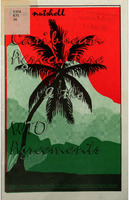| dc.contributor.author | Instituto Interamericano de Cooperación para la Agricultura (IICA) | es |
| dc.contributor.author | Arlington, H | es |
| dc.contributor.author | Chesney, D | es |
| dc.contributor.author | Antoine, Patrick | es |
| dc.contributor.author | Francis, Diane | es |
| dc.date.accessioned | 2020-10-26T17:32:55Z | |
| dc.date.available | 2020-10-26T17:32:55Z | |
| dc.date.issued | 1997 | |
| dc.identifier.uri | https://repositorio.iica.int/handle/11324/12814 | |
| dc.description | 20 páginas | es |
| dc.description.abstract | Industrial countries subsdise their agricultural sector by protecting them from competition and by subsidising exports, which have tended to lower international prices. In contrast, developing countries have tended to tax agriculture and subsidise domestic prices, which have discouraged production, encouraged consumption and increased import demand.Generally, agricultural trade liberalisation is expected to expand global trade and contribute to higher income growth. The challenge is to ensure that countries are choosing to implement their commitments in the spirit of the Agreement on Agriculture and that further commitments of liberalisation are carried out. | es |
| dc.language.iso | en | es |
| dc.publisher | IICA | es |
| dc.subject | Trinidad y Tabago | es |
| dc.subject | Caribe | es |
| dc.subject | Liberación del intercambio | es |
| dc.subject | Ronda Uruguay | es |
| dc.subject | Acuerdos comerciales | es |
| dc.subject.other | Representación Trinidad y Tobago | es |
| dc.title | In a nutshell focuses on the 1994 GATT/WTO Agriculture Agreement and other agreement of the Uruguay Round which are of relevance to global agricultural trade | es |
| dc.type | Libro | es |


